Forging a New Family
First Class of Diamond Family Scholars Ends an Eventful Freshman Year at UH
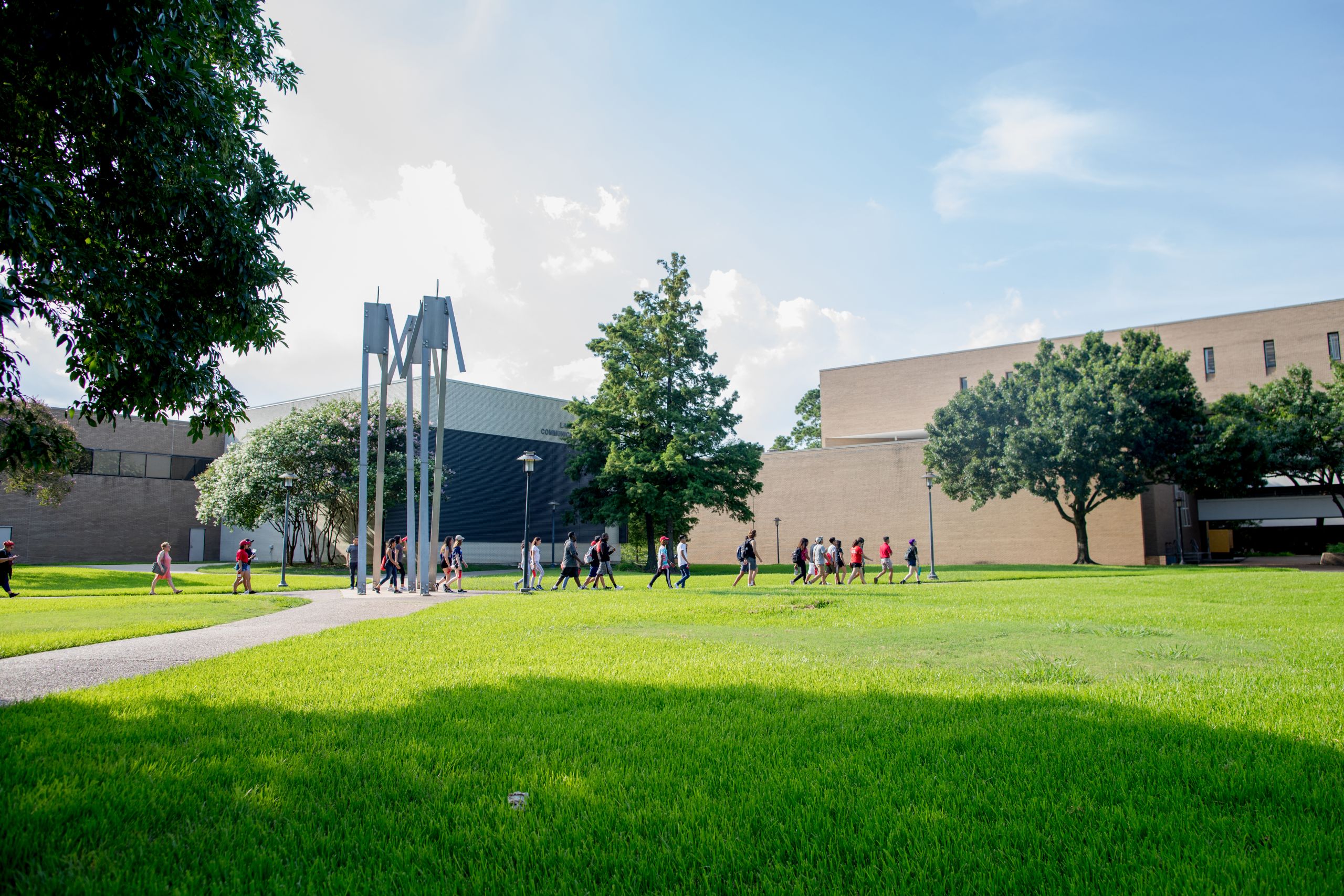
In retrospect, the trip to New York City served as an apt symbol for the year: Exciting, exhausting, a mix of new experiences and a sobering dose of reality.
But if the year had started with anticipation and uncertainty – none of the inaugural class of Diamond Family Scholars knew what to expect from their freshman year at the University of Houston – the Spring Break trip was clearly about having fun, complete with tickets to a Broadway performance of “Beetlejuice.”
Everyone knew the virus spreading across Asia and Europe had reached the United States in the days before they left. But New York is the city that never sleeps.
Diamond Family Scholars was created to serve students who have been in the foster care system or survived other family disruptions. The first cohort – six students from around Texas – started school last fall, receiving financial and other support services to boost their chances of success.
The trip to New York was covered by philanthropists Andrea and Andy Diamond, whose concern for young people leaving the foster care system without a safety net prompted them to make a $17 million gift to establish a program they hope will become a national model. Most students think of Spring Break as a time for vacation and family, and the Diamonds wanted these students to have a memory-making week, too.
And they did, although it wasn’t quite what anyone had expected. By their second day in New York, worries about the coronavirus were rippling across the city. They had tickets to be in the studio audience for the Wendy Williams Show. The night before, the live audience was cancelled. Two days later, as they prepared for an early dinner before heading to “Beetlejuice,” everyone’s phone began to ping.
All gatherings of 250 or more people had been banned. Broadway was going dark.
“It was weird,” said Marcela Molina. “It was my first time in New York, so I wanted to do everything.”
In fact, there was still plenty to see. They rented bicycles. They walked for miles. They went to Central Park and ate at Ellen’s Stardust Diner, served by singing waitstaff.
And then, after a cascade of cancelled flights and rerouted luggage as airlines tried to keep up with a rapid slowdown in travel, everyone was back in Houston, back on the campus that had become home.
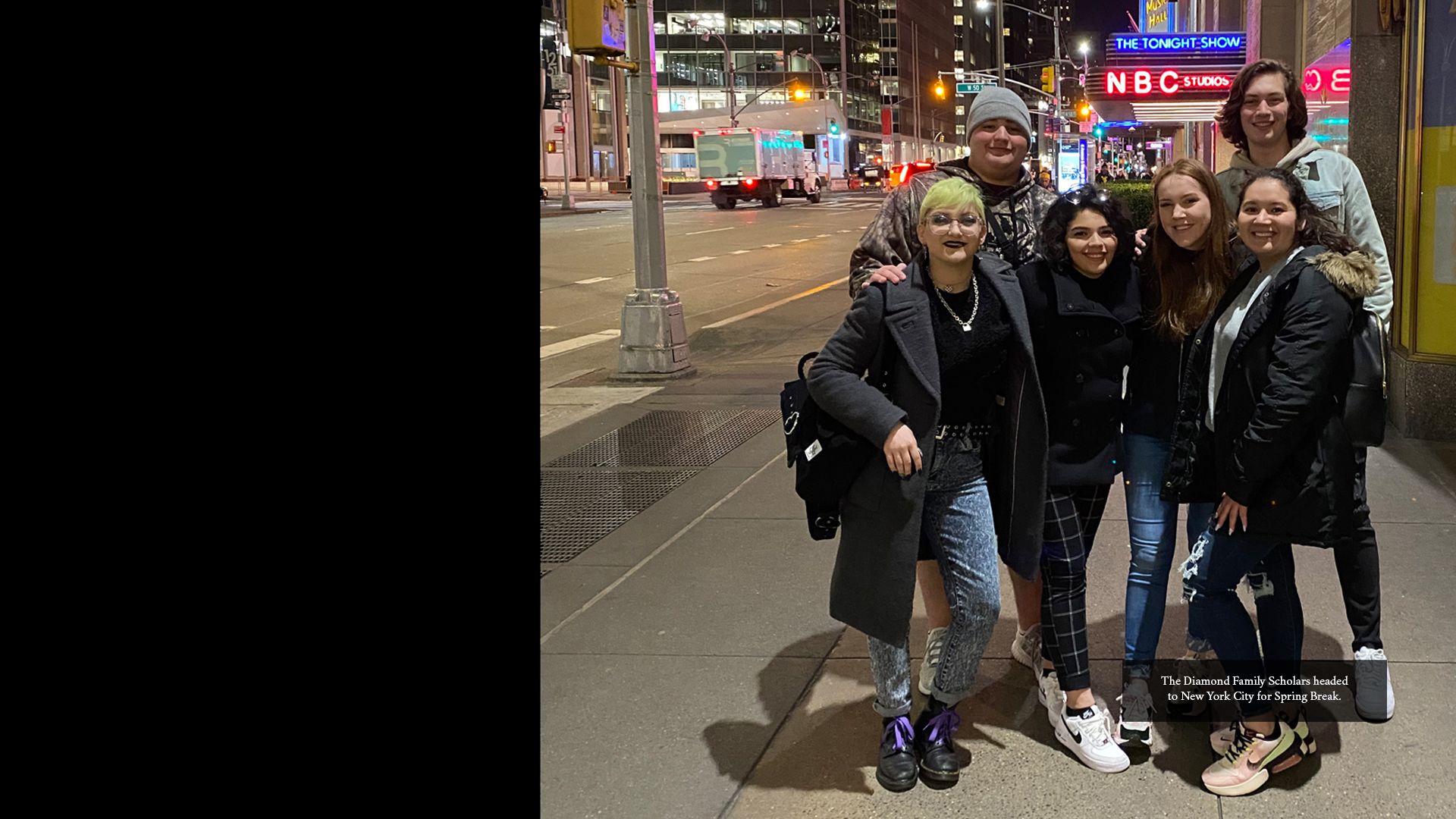
Just a week earlier they had crowded into Cougar Grounds, the student-run coffee shop at the Hilton University of Houston, to meet with the Diamonds for a send-off. Dylan Roy, a freshman from Spring, had a history midterm – he smoked it, he later informed them – and arrived just as the group was breaking up.
But everyone else was there, gingerly bumping elbows in place of shaking hands, an early hint of the changes to come.
The students brought red velvet cupcakes and candy in recognition of the trip.
“We got you a little something,” said Evija Johnston, an architecture student and native of Latvia, where she lived in an orphanage before being adopted as a teenager into an American family.
“We just wanted to say, Thank You,” said Andrea Tijerina, who left foster care when a San Antonio family adopted her and her sister.
The Diamonds were touched by the gesture but said their real reward is watching the students grow into a tight-knit group.
“They each have their own stories, but they’ve bonded,” Andrea Diamond said. “They help each other. That’s what we were hoping for, but when you see it, it’s even better.”
Andy Diamond said the idea for the program grew out of the couple’s concerns about domestic abuse. “The children are the ones who end up most affected by that, and they have no control over their circumstances,” he said.
As they learned more, they began thinking about foster care. It’s not that foster care agencies don’t do their jobs, Andy Diamond said, but that there is no real follow-up. “At 18, they seemed to be on their own. We decided we wanted to help with that.”
Diamond Family Scholars connects students with the benefits to which they are entitled – most qualify for tuition waivers at public colleges and universities, for example – and plugs the gaps to provide room and board, books and other supplies. The students live in Cougar Village and receive one-on-one advising and other support through the UH Urban Experience Program, known as UEP.
The first year started small, allowing the Diamonds and administrators Raven Jones, director of UEP, and assistant director Kolby Robinson time to prepare for adding a new cohort each year.
Andy Diamond said he envisions the program ultimately serving as many as 60 students at a time. Just as important, he expects 80% to graduate on time.
The initial group is on their way; Robinson said they had a collective 3.3 grade point average for the fall semester, and Maddie Couling joined the Honors College in January.
Couling, who graduated from high school in The Woodlands after being adopted by her grandparents, is majoring in health communications. Like the other students chosen, she wasn’t sure what to expect.
“Most scholarships, they just give you money and send you on your way,” she said. “I didn’t anticipate how much of a family we would become. How much we would hang out.”
Robinson has been there every step of the way, dispensing official Diamond Family Scholar polo shirts along with advice on everything from scheduling to money management. Her goal? To ensure the students succeed as a group while also becoming part of the larger student community served by UEP. Couling and Roy have work-study jobs in the UEP offices, although they, like everyone else, ended the semester working remotely.
Robinson and Jones were on the Spring Break trip, and despite everything, Robinson said they had a good time. “We all vowed that at some point before they graduate, we will go back,” she said.
For now, though, the students are headed into summer, working, taking classes and waiting to see what happens next.
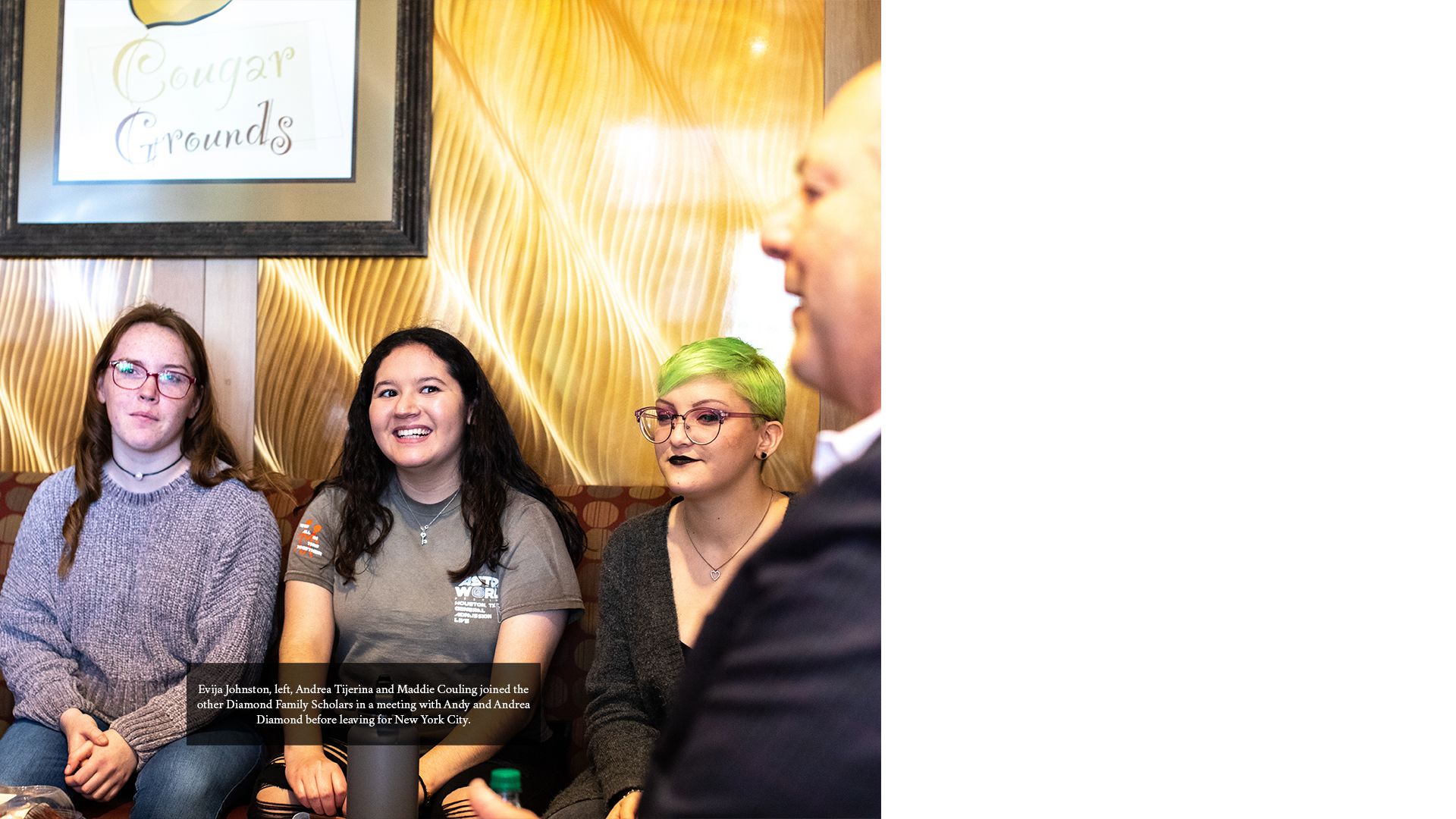
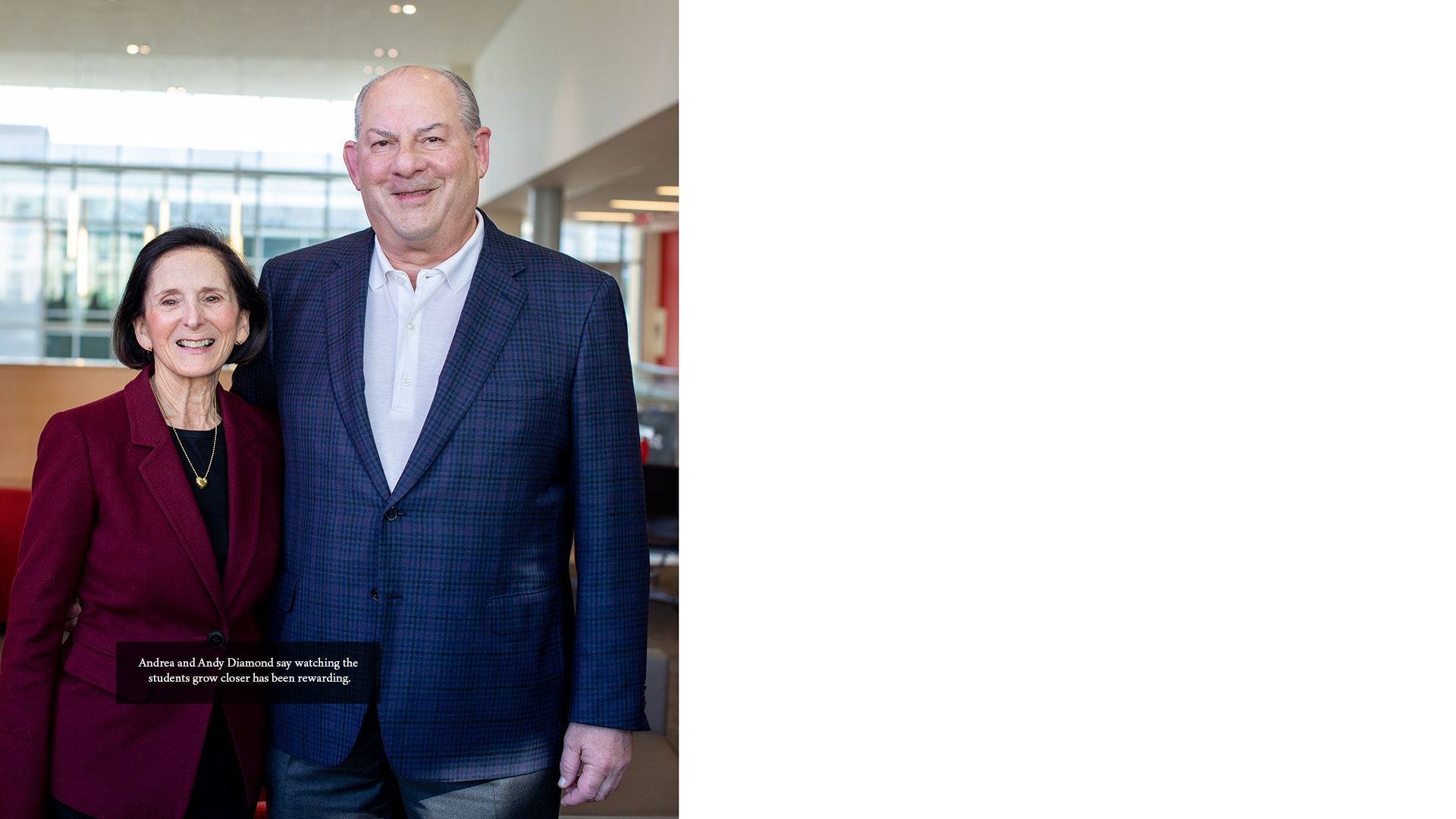
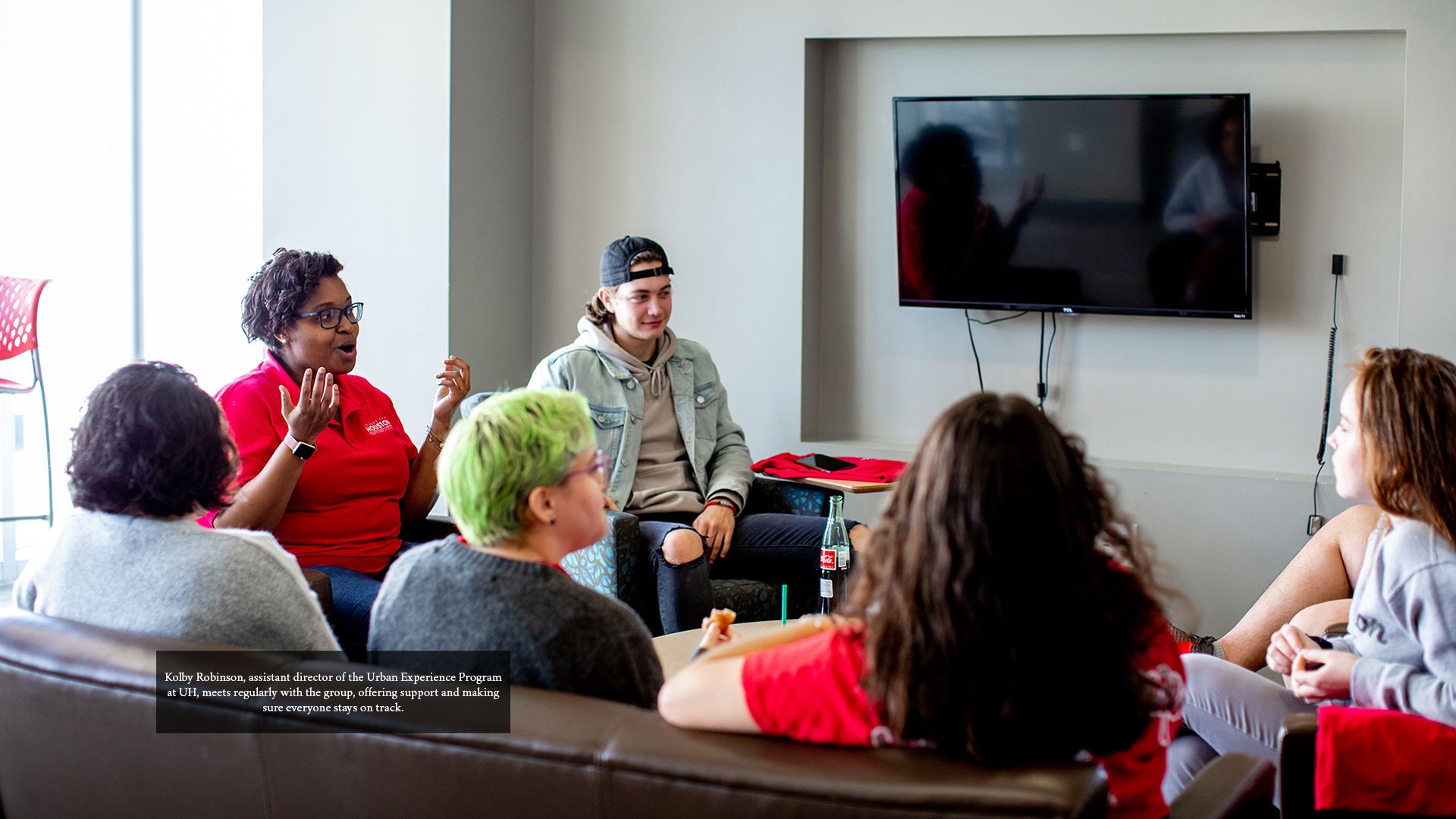
Molina and Couling had remained in Cougar Village after Spring Break, while the others headed home.
Molina’s mother died while she was in middle school, and her father died three years later. She will be in the residence hall for the summer, as well, taking classes online and continuing to work at an oil and gas company, a job she has held since a high school internship.
“I don’t have another home to go to,” she said.
The fact that housing is provided to Diamond Family Scholars proved crucial, but Molina said the less tangible support was just as important.
“Before I started college, I was so worried about how I would do it,” she said. “I am first generation. I didn’t have a lot of support from family. I felt really alone. But meeting the Diamonds, that made me feel better.”
Couling, meanwhile, stayed put to avoid potentially putting her grandparents at risk, just in case she had been infected with the virus in New York. But she’ll be back with them this summer and hopes to land a job using her certification as an emergency medical technician.
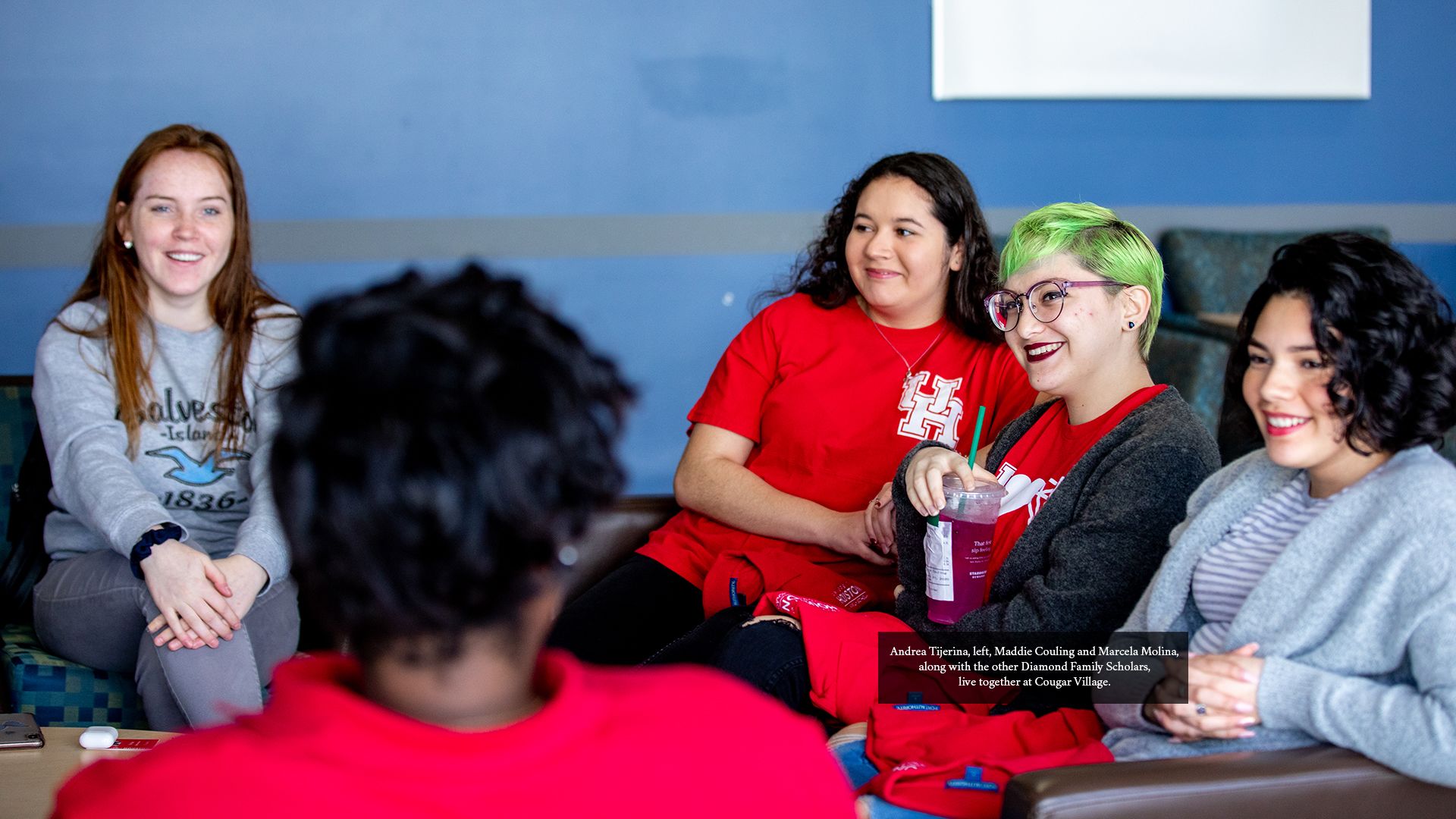
The students all have different stories – parents with drug problems, time in foster care, adopted by relatives or new families. They have different majors, and different academic strengths.
“For me, I don’t like math. Sean (Ferrell) is good at math, so if I am having trouble, I can ask him for help,” Molina said. “I love reading and writing, so if someone needs help with an essay, I can help them.”
Roy and Couling had a few of classes together this spring. Other students were in different sections of the same class, making it easy to study together and hold each other accountable.
“We’ve definitely bonded in so many ways,” Couling said. “We’re stuck with each other for the next three years, so it’s nice that we’re really close friends. I consider them family.”
